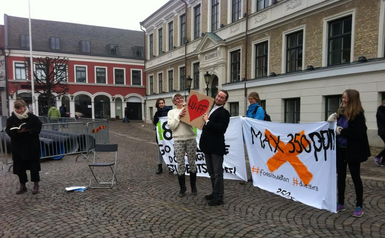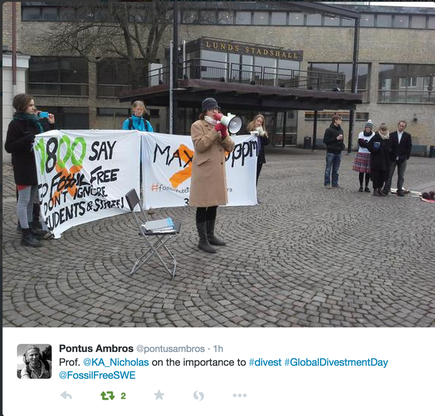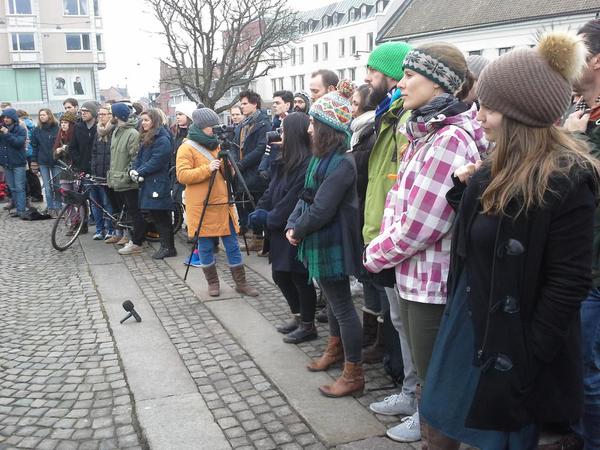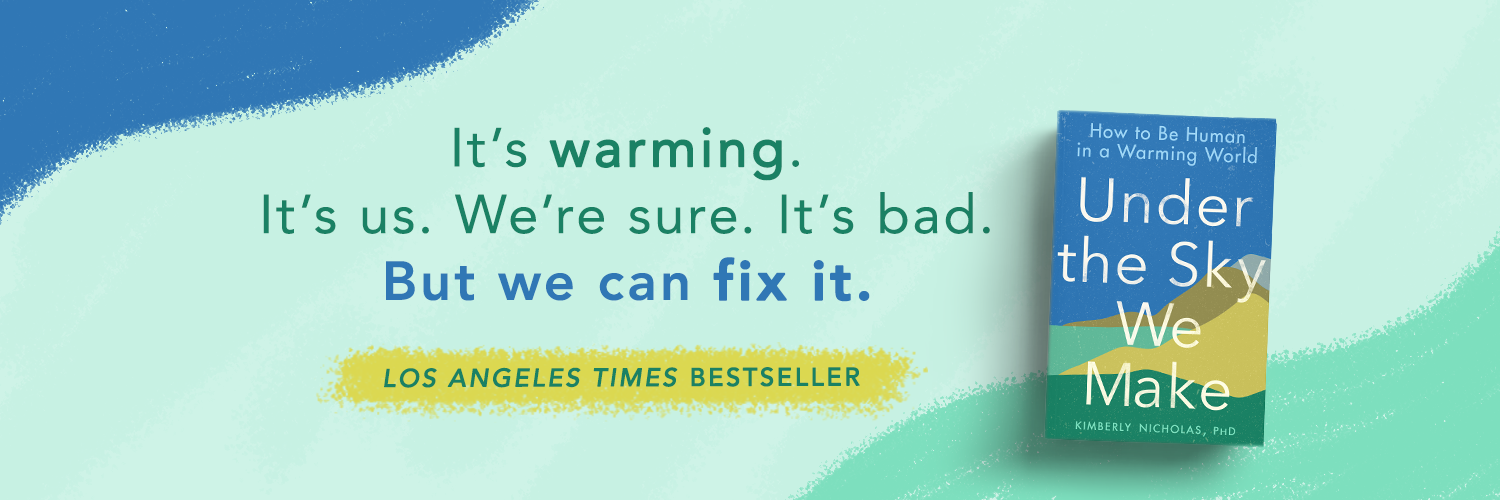 It started out as a love affair to remember, but student street theater dramatized the breakup between Lund University and fossil fuels. It started out as a love affair to remember, but student street theater dramatized the breakup between Lund University and fossil fuels. Today for Global Divestment Day, along with hundreds of events organized worldwide, my students in Lund and others in Fossil Free Sweden held a street theater performance dramatizing the impending breakup of a relationship that has turned destructive: the connection between Lund University and fossil fuels. They asked me to give a short speech on the science of climate change and the connection with divestment. Speech text follows. Thank you to my students for inviting me here, and to all of you for being here. I’m Kim Nicholas, Associate Professor of Sustainability Science at the Lund University Centre for Sustainability Studies. I’m here representing the scientific perspective on the urgency of climate change. Based on this urgency, I’m also here representing many of my colleagues, fellow faculty across departments and disciplines, who are joining together with an open letter urging the board at Lund University to comprehensively divest from fossil fuels with all due speed. Earth system scientists are like doctors, taking the pulse of the planet. And like doctors, when we see something from our measurements that worries us, we owe it to our patients to speak up. To give you my diagnosis upfront: science tells us that the climate is warming, it’s caused by our activities, we’re sure, it’s bad- and most importantly, that we can fix it, which is why we’re here today. For decades now, my colleagues and I are seeing that something is wrong with the patient Planet Earth. We see it in every corner of the globe- from melting ice sheets, to my own research studying how the climate affects food production. I am truly worried about how climate change is already decreasing crop yields and quality around the world. We have already seen a decline in cereal yields of 10% for every 1°C temperature increase since 1980.
Continuing on our current path of fossil fuel emissions produces some truly terrifying risks. The more carbon we emit, the more warming we expect, and the more severe, widespread, and irreversible the impacts. This is the conclusion of scientists regarding impacts on food production and water access, on natural habitat and human health.
This means that unchecked climate change limits our options for a good life, and makes such a life further out of reach of those around the world whose basic needs are not met today. So how do we avoid this risky future? It is a big challenge, but we have solved big challenges before. It is late in the game, but we are not too late. We have an opportunity to act now, and we must seize this opportunity. How do we “fix” climate change? There’s a very simple answer. There is widespread scientific agreement that, to reduce the risks we face, we need to limit warming to 2°C. To meet this target, just like we have a home budget to live within our means, the planet’s atmosphere has a budget of carbon dioxide. There are five times more fossil fuel reserves than the atmosphere can afford to absorb without exceeding the danger zone of warming. Meeting our carbon budget and avoiding dangerous warming means that the majority of fossil fuel reserves need to stay in the ground. If these reserves are burned according to current business plans, we are facing very serious risks. We need to pursue every option we have today to make a good life, a healthy life full of opportunities, one that does not run on carbon. This is why continued investment by Lund University in companies that profit from fossil fuels flies in the face of science. The research carried out here, and at other universities around the world, clearly shows the risks. It is logically inconsistent for Lund University to ignore the knowledge it is helping to produce in guiding its own management choices. Personally, I believe it is also ethically inconsistent for Lund University to continue its investment in fossil fuels. Even if its fossil fuel holdings are small, about 1% of funds, these investments are out of line with the ideals of a university like Lund. What is the purpose of a university? Lund University’s mission statement is to “understand, explain and improve our world and the human condition.” Universities are a place where we confront the sometimes very big gap between our highest ideals, and the imperfect world we see around us every day. Universities exist to help close that gap: to innovate, to create an example of how things can be better. With divestment, we have an opportunity to do just that. The faculty of Lund University are here to teach and to challenge our students. But sometimes our students challenge us, and question our assumptions- and this is a challenge we must face. Now our students are speaking with a clear voice: their future is at risk, and they want their university to lead the way to something better. I want to be a part of that University as well, one that not only supports the best research, but also supports putting those findings into practice in its own actions. The students I teach in the LUMES program come to Lund from 30 different countries around the world. They come because Sweden, and especially Lund University, has a reputation as a global leader in sustainability. I came here myself from California for that reason. There is a growing global movement for a better future, and I want Lund University to lead the way there. To walk this path, we call on the Lund University Board to join others around Sweden and the world in comprehensive divestment from fossil fuels. |
Categories
All
Archives
November 2023
|
KIM NICHOLAS


 RSS Feed
RSS Feed

